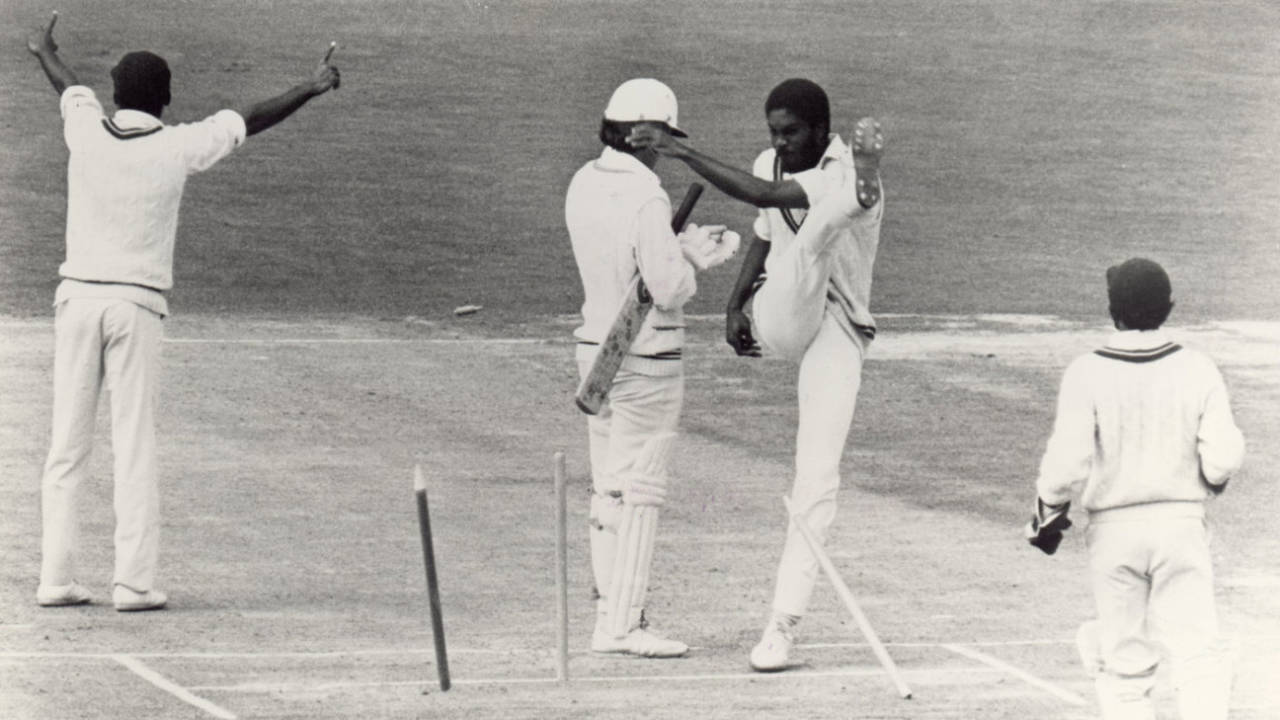Six series mired in acrimony
From Bodyline to Sandpapergate, these contests are remembered for the controversies they sparked
Getty Images
1932-33 Ashes
A cricket series so acrimonious it ended a talented fast bowler's career, led to the ostracising of a famous captain, soured relationships between two countries, and led to a permanent change in cricket's rules. By the time the 1932-33 Ashes rolled around, Don Bradman was well on his way to becoming a cricketing God - he had scored 974 runs at 139.14 in the previous Ashes. To counter his brilliance, Douglas Jardine, the England captain, a man who, reportedly, had a special hatred for Australians, decided to employ "leg theory", a tactic of placing a ring of close fielders on the leg side and bowling short at the batsman's body. Harold Larwood, one of the fastest bowlers of the time, was charged with attacking the batsmen's heads and ribs and left many of them bruised. While England won the away series 4-1, the Australian board protested, declaring the tactic unsportsmanlike, and the MCC eventually agreed it was not in keeping with the spirit of the game. Bodyline bowling was subsequently outlawed.
West Indies in New Zealand, 1979-80
Clive Lloyd's mighty West Indians had already won in India, England, and Australia. It seemed a foregone conclusion they would add New Zealand to the list. But, when they travelled there in 1979-80, umpiring took centrestage. West Indies were already upset at having seven lbws given against their batsmen over two innings in the first Test, and things kicked off, literally, when Michael Holding was refused a caught behind in the fourth with New Zealand 28 for 2, chasing 104. The batsman, John Parker, was already removing his gloves, prepared to walk back to the pavilion after watching the keeper complete the take, but umpire John Hastie ruled not out. Exasperated, Holding kicked down the batsman's stumps. New Zealand ended up winning by a wicket.

Pakistan in Sri Lanka, 1986
Fights between the players, with someone in the stands, a walk-out by the umpires, a letter to a president - there was drama enough for a mini-series when Imran Khan's Pakistan visited Sri Lanka in early 1986. There was already some tension between the sides as Duleep Mendis, the Sri Lanka captain, had complained about biased umpiring when his side toured Pakistan the previous year. Early in the series, Sri Lankan umpire Alane Felsinger allegedly told the visitors this was "not Pakistan" while turning down an appeal. Defiant, the Pakistan players appealed more often and longer, causing the umpires to walk off in protest. Khan had to apologise to convince them to return.
Pakistan in England, 1992
Wasim Akram and Waqar Younis took 43 wickets between them as Pakistan beat England 2-1 over five Tests. The world heralded the coming of two generational talents, but the British press could not wrap their heads around how the duo could get the old ball to swing so much, and so late. Akram and Younis, along with Aaqib Javed, had played on the county circuit, and there were already murmurings about them tampering with the ball, which only got louder as they ripped through England again and again. Things came to a head during the fourth ODI, at Lord's, when the ball was changed during the lunch interval of England's innings. The ICC never made it clear why the match referee changed the ball, leaving a cloud hanging over the incident.

India's tour of Australia, 2007-08
It takes a fair bit to make the usually even-keeled Anil Kumble angry, so when he accuses a team of not playing in the spirit of the game, you know a series has become really heated. In the Sydney Test, the second of the series, umpire Steve Bucknor made several mistakes that went against India. But what irked Kumble and his team was first that the Australians refused to walk, even when the edges seemed clear, and second that Ricky Ponting, the Australia captain, insisted a catch taken by Michael Clarke close to the ground was clean, raising his finger to signal to the umpire it was out. Replays suggested the ball may have hit the ground, but since the teams had a pact to take the fielder's word for close ground catches, Sourav Ganguly had to walk off when Ponting made his gesture to the umpire.
Australia's tour of South Africa, 2017-18
On the second day of the four-match Test series, Australia players were heard using ambush marketing tactics in protest of having the stump mic volume turned up. By the end of the series, that would be barely a footnote as they lost their captain, vice-captain, opening batsman and coach before the final ball was bowled.
Mohammad Isam is ESPNcricinfo's Bangladesh correspondent. @isam84
